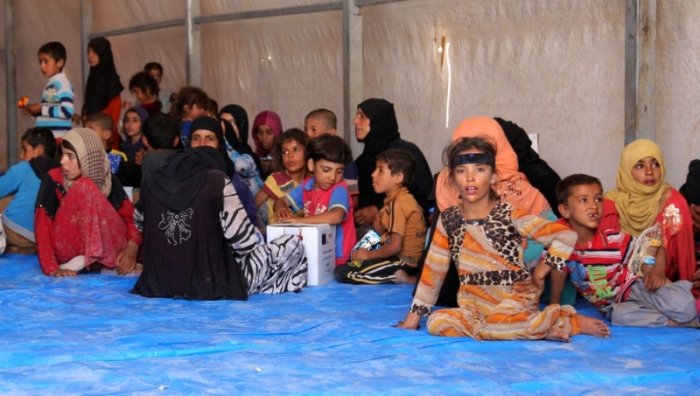Military operations to retake Hawija district and surrounding areas, which began on 21 September, have to date displaced more than 2,400 individuals from Hawija, Kirkuk governorate and Shirqat, Salah al-Din governorate. The majority displaced to Ninewa governorate, including 1,700 individuals bussed by Iraqi authorities to IOM’s Haj Ali emergency site 60 km south of Mosul.
Most of these recently displaced people arrived to a secure area after fleeing their towns and villages, many walking five to 10 hours through desert lands, leaving them dehydrated and exhausted.
The majority of IDPs arriving at Haj Ali are children, women and older people. As the military operations continue, thousands of additional families are expected to be displaced and in need of assistance.
Upon arrival, families are assigned a tent and given two kits: a Rapid Response Mechanism kit (food, water and a hygiene kit) from a local NGO; and an NFI kit from IOM, including mattresses, bedding, kitchen set, fan, light, plastic mats, gas cooker, and more. An IOM doctor is present at registration to identify urgent health needs.
Amal, 24, from Tal al-Wared village in Hawija district, along with a group of family members, arrived in Haj Ali site on Friday, September 22. While visiting IOM’s health center for medical checkups, she said “Life in Hawija was very difficult, there were shortages of food and basic supplies. I am very concerned about my 16 relatives who were not able to depart with us. We are still waiting to hear from them.”
Dr. Ahmed Basheer of IOM at Haj Ali site was among a group of first responders to provide emergency medical care for newly displaced people.

